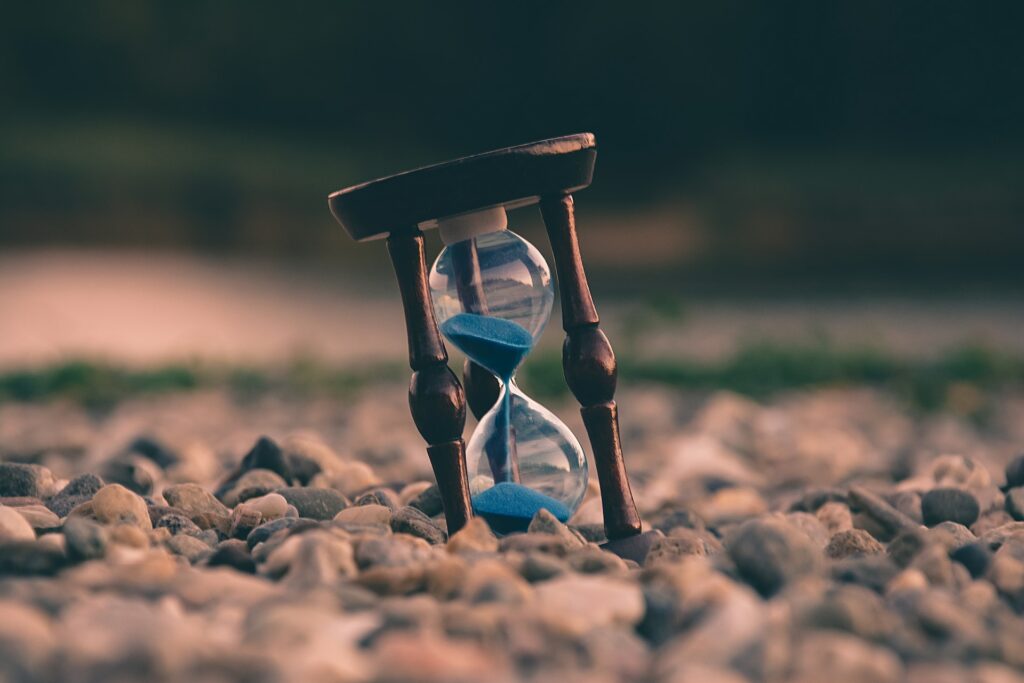Today’s article is written by Emil Rem, author of Heart of New York and Chasing Aphrodite [EICA Press, 2022].
Every day I wake at five to begin the juggle between writing creative nonfiction and my day job as an accountant. With two such diametrically opposite endeavors, both filled with all sorts of deadlines, I have to be very mindful about how I structure my time. Usually, my days are meticulously planned out.
One recent morning I woke at the crack of dawn, filled with determination to tackle the tasks that lay ahead and be ahead of schedule both with the pile of tax returns needing my attention and the draft chapter I had promised to my editor.
However, life, as it often does, had a different plan. My wife, waking at a more leisurely 9 a.m., had a simple request. “Hon, can you drive me to Saskatoon Farm? I have some muffins to pick up.” I let out a sigh, masked my growing panic at the thought of rescheduling my work, and agreed to her request.
Then came a detour for breakfast at Phil’s. And a spontaneous trip to the annual Lilac Festival that was taking place on our street. And just as I thought I could return to my work, my son woke up late and needed a ride to the campus of Mount Royal University where he’s a student.
Time, it seemed, was slipping away.
Don’t get me wrong: this is not the same as procrastination. Procrastination is when we choose to do something else instead of what we intended to be doing—whether that’s writing or paying the bills. Wasting time is when, it seems, we’re doing nothing at all.
About to scream “Stop wasting my time,” I paused. Suddenly, I was transported back to my younger days, bombarded with the echoes of my mother’s disapproving voice. “You failed your high school exams. You failed every accounting exam you’ve taken. You’re such a loser. Stop wasting time.” Despite thirty years of physical separation, it felt as though my mum was standing right in front of me, her voice laced with fiery rebuke.
In the midst of the chaos, a realization dawned. Immersed in the happiness my family and life with them has brought me and the love we share, I recalled a quote from one of my favorite childhood books: Antoine de Saint-Exupery’s The Little Prince.
“All grown-ups were once children . . . but only few of them remember it. It is the time you have wasted for your rose that makes your rose so important. I am who I am and I have the need to be. The most beautiful things in the world cannot be seen or touched, they are felt with the heart.”
That day, amidst unexpected detours and incessant interruptions, I was reminded that what has come to be known as “wasting time” is, in fact, an invaluable gift—one that we should all embrace routinely—even when it seems inopportune. Unlike procrastination, which usually leads us to either switch to a different but productive task or engage in mindless habits like swiping our news feeds, when we “waste time,” we . . .
Connect with the People Around Us
Whether it’s a spontaneous breakfast with our partner or a drive across town with our child, these are the moments that deepen our relationships. When we set aside our immediate tasks and engage fully with our loved ones, we create memories that often prove to be more valuable than any material possession or accomplishment. Time spent with loved ones is never wasted.
Live in the Moment
In the hustle and bustle of life, we often become slaves to our schedules, losing sight of the present moment. But when we allow ourselves to “waste time,” we live in the moment, noticing our surroundings, savoring our experiences, appreciating simple pleasures. As mindfulness experts point out, this enhances our quality of life. It also gives us new experiences to inspire us as writers.
Invest in Self-Care
Constantly chasing deadlines can lead to burnout and stress. By seemingly “wasting time,” we give ourselves permission to slow down and relax, which is crucial for buffering the demands of daily life and maintaining our mental and physical well-being, as well as creativity.
Foster Creativity
Great ideas often emerge when our minds are allowed to wander. By stepping away from our immediate tasks and giving ourselves the freedom to simply think or daydream, we can unlock our creative potential. How many times have you had an “aha” moment about your manuscript when you’re not focusing on anything at all?
Gain Perspective
Time spent away from our work allows us to reflect on our lives and our writing from a broader perspective. We can reassess our priorities, redefine our goals, and gain valuable insights into what truly matters to us.
As I sat back down at my desk that day, late in the afternoon, I felt a profound sense of fulfillment. I was grateful for the reminder that the value of my day should not solely depend on the number of financial statements I prepare or tax returns I complete. It’s also about the laughter, shared moments and memories I create with my loved ones.
Indeed, the most beautiful things in the world are not seen or touched, but felt with the heart. And feeling from the heart is the place where writing from the heart begins.
